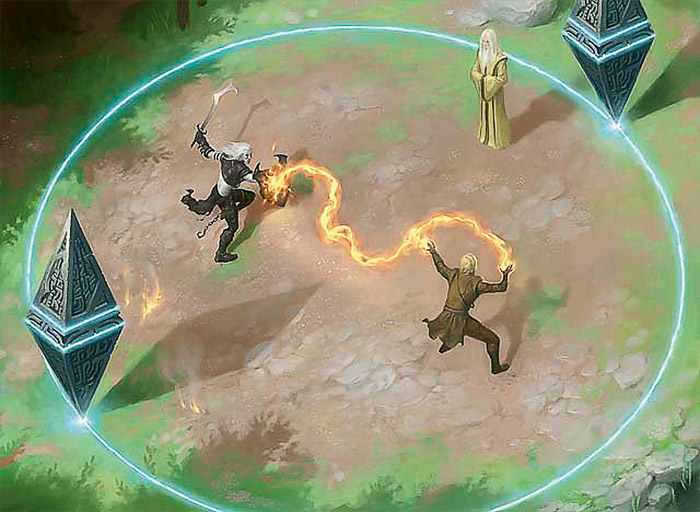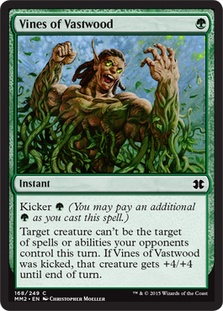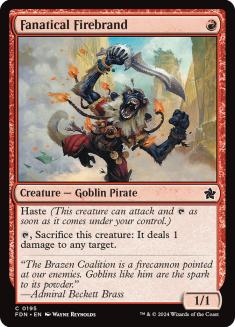All right, what’d I miss?
I’ve been on medical leave for a few weeks and haven’t been paying a ton of attention to everything going on in the Magic community. Sure, Kaldheim has had a couple of previews, Zendikar Rising Standard looks largely the same as it did a month ago, and I guess I’m going to Wizards of the Coast next month. Some of that might be cool, but it isn’t exactly the most actionable set of occurrences for people looking to up their Magic game.
While out of commission, I did what most conscious bedridden people do: ate too much ice cream, Tweeted some stuff I’d come to regret, and binged a lot of Netflix, with one show in particular catching the Magic community’s attention.

For anyone who’s dodged the hype over the last few weeks, The Queen’s Gambit follows the journey through competitive Chess in the 1960s. There are a number of parallels with tournament Magic that have strung a chord in the hearts of grinders and FNMers alike. Part of what’s so resonant in Beth’s path is how many lessons the show teaches that are applicable to both gaming in a tournament setting and life in general.
Not everything in the show is a perfect 1:1 ratio, but there are certainly areas in her pursuit of mastery that translate spectacularly to Magic which might be overlooked while simply watching a bit of TV. Enough of it stuck out to me that connecting the proverbial dots between the events in Beth’s life and their corresponding applications in Magic felt to make for a much better return to writing than the Xth Gruul or Goblins article I’d be writing otherwise.
Before getting too far into it, I will disclose that there are minor spoilers in the upcoming portion of the article; hard to write about takeaways from a show without acknowledging the plot, right? That being said, most of the points are from earlier parts of the show for the sake of not taking things away from people who might be interested in consuming the show after reading the article. I can’t recommend it enough.
With that out of the way, lessons!
1. Put yourself in a position to succeed.
In the interest of really hammering home parallels with the show: it opens with Beth pulling herself out of a bathtub before the finals of an important tournament in France against the reigning world champion. After an all-night bender with a friend, Beth pulls herself back to reality with a few vices, plays terribly, and gets absolutely smashed in her finals match.
The lesson here is actually a bit of a twofer. The first example here being something that largely speaks to the “put good in, get good out” drum that people beat. That’s to say that staying hydrated, getting good sleep, eating a good breakfast before a tournament, and so on are all major contributors to playing better.
Losses are obviously easier to swallow whenever you can say “I was starving.” Or “I only had a couple of hours of sleep the night before.” But ultimately, loss is still the medicine you’re washing down. Beth lacking confidence in herself to perform without these sorts of limitations on herself is a running theme in the show and is typical in tournament Magic. That being said, it isn’t just a health lesson.
In this combat step, Autumn Burchett has the option of blocking a Nightmare token from Ashiok or Crawling Barrens. Autumn ends up blocking Crawling Barrens because it creates a situation that does one of two things:
- Bonecrusher Giant trades with Crawling Barrens, meaning that Barclay won’t have the ability to kill Autumn the following turn.
- Barclay pumps Crawling Barrens to save it, but that completely taps Barclay out of mana and gives Autumn a couple of topdecks to immediately win the game.
As you can see in the clip, Autumn very cleverly rips Questing Beast off the top of their library and immediately wins the game on the spot. It looks like it’s all luck, but when you look at the cards that were in Barclay’s hand, it’s much easier to see that Autumn actually did some work to create a situation where Questing Beast isn’t actually a dead draw.
What this means is that despite the play looking like Autumn leaving a bit of value on the table by not simply eating a Nightmare in combat with Bonecrusher Giant, they actually created a scenario that left them 10% or so to win the game on the spot.
This bit is touched on throughout the show, but it’s hard to get into details without spoiling too much. Largely the quotes to focus on are things to the effect of, “I just watched it all happen. It felt like all of my moves were scripted and I just played right into what [they] were doing.” Rather than playing into sequences that will guarantee your opponent victory, sometimes the only winning play is to recognize you’re on the path to losing and the 10% gambit is the only way out.
2. Study.
How frequently do you go back and watch the tape? It’s common in sports, competitive gaming, really anything that involves refining a specific skill. Part of realizing how to improve is finding the points for improvement.
Even if you aren’t planning to stream, having something like OBS to record your tournament and practice games for the sake of analysis is a great tool for identifying where things went wrong and what you could have done differently. The conclusions you draw after the fact, or not in the heat of the moment, can be completely different than what you do in-game. What your opponents end up doing can also impact what the correct play was.
If you’re serious about improving, figuring out the places you do things wrong is the most important piece of humble pie you can eat. Studying games isn’t limited to your own plays, however.
Do you ever go back and rewatch coverage? There’s a ton to learn, even from dead formats. Take my favorite play in the history of Magic:
For anyone unfamiliar with The Force Spike Heard ‘Round the World, the summary is like this: Despite having a Force Spike on Turn 1, Antoine Ruel plays a tapped Watery Grave when he has Island. The following turn, he plays the Island, casts Duress, and allows a Mana Leak on his Duress to resolve, despite Force Spike being live to counter the spell. The signaling here baits Kenji Tsumura, one of the all-time greats of the game, into slamming a Psychatog right into the Force Spike.
So how was this applicable ten years later?
I’ve played a lot of Infect in my life, and figuring out all the different ways to gets bluffs over on people is the name of the game when it comes to punishing protection spells.
That’s not even getting into more recent decks to learn from. Earlier this year, I had a few days to learn how to play Jeskai Fires before an important online event. Rather than simply jamming games and figuring all of it out on my own, there were several events worth of games to review. Watching Worlds to see how Marcio Carvalho sideboarded and sequenced against Azorius Control; or Mythic Championship VII for Paulo’s plans against Piotr Gloglowski’s Jund Sacrifice; or Dreamhack Anaheim for what Mani Davoudi did against Temur Adventures. The list goes on.
There’s information to extract from simply watching how other masters of the game play their cards. There might not be entire books written by the GOATs of Magic, but reverse-engineering how they use their game pieces leads to some serious level-up moments on its own.
3. Learn from people worse than you.
To quote Bill Nye: “Everyone you will ever meet knows something you don’t.”
One of the best parts about working with Autumn Burchett is that, despite them being markedly better at Magic than I am, there are still leaks of theirs I can cover. It leads to a symbiotic relationship between the two of us where we both have the ability to grow, despite there being a marked skill gap between the two of us.
Creatures (31)
- 4 Goblin Matron
- 3 Goblin Warchief
- 4 Skirk Prospector
- 4 Goblin Chieftain
- 4 Krenko, Mob Boss
- 4 Wily Goblin
- 4 Conspicuous Snoop
- 4 Muxus, Goblin Grandee
Lands (6)
Spells (23)

To use a recent example, one of the things that Autumn is the best at on the planet is working out sideboard plans that allow a deck to have a plan that operates favorably against a given strategy. That might mean extending the game or condensing it, but the idea is to try to put a squeeze on the opposing deck that it isn’t prepared to answer.
This leads to a good number of Autumn’s plans being things in the vein of maindecking Mind Stone in Mono-Red Goblins because it creates acceleration against decks that can’t be answered by creature removal. On top of that, the cards it cranks out aren’t soft to Aether Gust in the ways that Wily Goblin and Skirk Prospector’s acceleration are.
I come in on the single-card interactions.
Originally, Autumn was higher on a copy of Fanatical Firebrand in the deck as an answer to the Historic Neostorm deck. Kill the Sea Gate Stormcaller with its trigger on the stack and they can’t combo.
Except Fanatical Firebrand is weak to all of the same removal that the rest of the deck is weak to, and they can just sacrifice a different creature if they have one. If they don’t, they can simply not play into said Firebrand.
Do things like this mean I’m better at Magic than Autumn? Obviously not. We all have leaks and can tunnel-vision on the upside of gameplans.
In a similar fashion, I’ve taken decks and plans from players worse than me and incorporated them into my own play. What we refer to as “play skill” ultimately isn’t an absolute measuring tool to define one’s entire Magic arsenal.
4. Keep your plans open.
Here’s a hot take for you: “Who’s the Beatdown” hasn’t aged particularly well. Before you get out your pitchforks, lemme explain.
Originally, Magic was a game where matchups had more concretely defined aggressors and defenders. A lot has changed in the last twenty years or so. Now, decks tend to lean more flexible as variations of midrange or even tempo.*
*No, I will not be defining tempo today.
This means that the player who’s the aggressor, or what’s important in a game, will shift based on the texture of what’s actually happening on the battlefield. Whether or not a player has a Nissa, Who Shakes the World can completely change if that player is trying to pressure their opponent or simply keep their head above water. The same can be said for something like Vivien, Monsters’ Advocate in Standard.
Standard in particular is a place where threat diversity is frequently the name of the game, and determining the important facets of a game will lead to as much success as sussing out who technically has the biggest card between both players.
5. Recognize your engagement.
The incredibly abridged version of this lesson is: do what you want. If you aren’t willing to put in the effort to try to be the next World Champion, that’s okay! There’s a lot of room in Magic to engage with the game on the level that’s best for you. That can mean going out to a SCG Tour Open Weekend or MagicFest (when we can have big events again) once or twice a year, or it can mean just drafting on Arena.
I’ve seen the game be absolutely terrible for some people who tried to put themselves in a box that they didn’t belong in. Not everybody is meant to be a Spike, and that’s perfectly reasonable. Ultimately, Magic is a game, and isn’t going to be more than a hobby for 99.999% of people who play it. That doesn’t mean people who aren’t pros don’t have room for growth or any reason to try to refine their skills.
It’s just important to exercise a bit of self-awareness and regularly check in with yourself to make sure that you’re actually getting what you want out of the game, rather than forcing yourself to do something out of obligation.
6. Smell the roses.
Life ain’t lived inside the B1 level of a convention center. Events are great, but they’re the means to an end. There’s some cheesy line to the effect of Magic actually being about “The Gathering” or what have you, but I’ll spare you. Whenever you’re traveling to events (in the distant future), try to take some time to appreciate where you are, the places you’re going. There’s more to Atlanta than the Holiday Inn, the Infinite Energy Center, and the McDonald’s across the street. (CEDitor’s Note: Like the Carrabba’s Italian Grill across from the Infinite Energy Center!)
Splurge and take a Friday or a Monday off once in a while for the sake of checking out downtown Seattle or wherever the CommandFest happens to be. Most hobbies don’t afford their participants the opportunities to travel, let alone necessitate it. If you’re already going out of your way to drive a few hours out of town to go sling some cardboard, you might as well get a great local plate of food out of the deal.
These last couple of points are largely to bring home one of the focal points of The Queen’s Gambit — you gotta figure out who you’re gonna be. All kinds of people are gonna expect things of you or want you to do things or want you to listen to them. But it’s up to you to figure out how you wanna live your life and what will make you happy.




